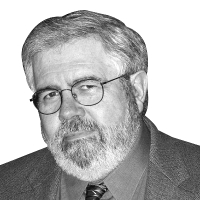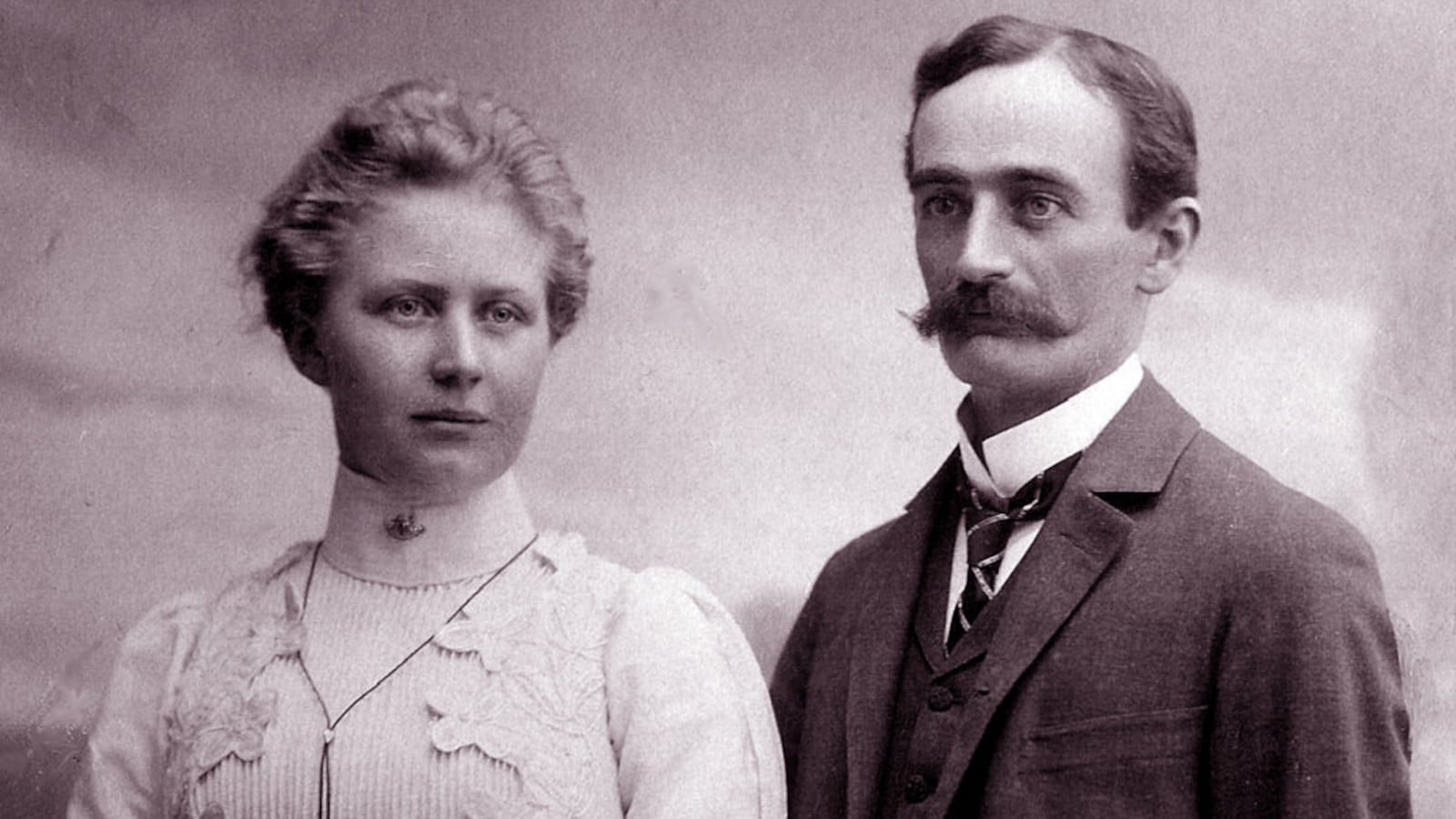The Trump family’s deep roots in Germany stretch back to the war-ravaged seventeenth century, when the family name was Drumpf. In 1648, they simplified the name to one that would prove to be a powerful brand for their latter-day descendants.
Looking back from the twenty-first century, it turns out to have been an interesting choice. Donald no doubt enjoys the bridge player’s definition of trump: a winning play by a card that outranks all others. But other definitions include “a thing of small value, a trifle” and “to deceive or cheat” as well as “to blow or sound a trumpet.” As a verb, trump means “to devise in an unscrupulous way” and “to forge, fabricate or invent,” as in “trumped-up” charges.
Donald Trump never knew his grandfather, Friedrich, who died when Donald’s father, Fred, was only twelve years old. As a rogue entrepreneur, however, Friedrich cast a century-long shadow over the Trump family with his passion for money and the flouting of legal niceties—such as erecting buildings on land he did not own.
Friedrich Trump grew up in the winemaking region of southwest Germany, in the town of Kallstadt, where hard work meant a roof over one’s head, not riches. His father had died when Friedrich was only eight years old. In 1885, at the age of sixteen and facing mandatory military service, Friedrich left his mother a note and did what millions of other Europeans with few prospects at home were doing: fled Germany for the United States.
Enduring a surely difficult North Atlantic crossing in a packed steamship, Friedrich eventually landed in New York, where he moved in with an older sister, Katherine, and her husband, both of whom had immigrated earlier.
Before long, the young man decided to go west, eventually settling in Seattle, where he opened The Dairy Restaurant. It also had a curtained-off area that most likely served as a low-rent whorehouse, according to Gwenda Blair, who had the family’s cooperation in her history of the Trumps.
In 1892, Friedrich became a citizen, lying about his age in the process by saying he’d landed in New York two years before he actually had. Two friends accompanied him to the proceedings to attest to his good character. One was a laborer, the other a man whose occupations included providing accommodations for what Blair politely called “female boarding.”

Friedrich was the genesis of many Trump family traditions in America, but voting was not among them. In fact, his grandson Donald would run for president after failing to vote in the 2002 general election and, as records indicate, in any Republican primary from 1989 until he voted for himself in 2016. Friedrich’s great-grandchildren were even less diligent in their civic duties. When Donald Trump’s name appeared on the New York State primary ballot in 2016, his daughter Ivanka and son Eric, both in their thirties, could not cast ballots because they had neglected to register as Republicans.
They blamed the government, saying they should have been allowed to change from independent to Republican at the last minute. But the primary voting rules, however outmoded, had been law in the Empire State for many years. The siblings had months in which to change their registration so they could vote for their father.
A family tradition Friedrich Trump did start in America, however, was the art of prospering but wanting more. Friedrich sold his restaurant/bordello and set up a new business about thirty miles north. Rumor had it that the oil-rich Rockefellers planned a big mining operation in the area. On a piece of land he didn’t own, right across from the train station, Friedrich built a hotel of sorts—one intended mostly for, shall we say, active short stays, not overnight visits. Building on land he did not own foreshadowed the terms under which his grandson Donald would acquire the Florida mansion Mar-a-Lago: with a mortgage that Chase Bank agreed in writing not to record at the courthouse.
In the end, the mining project fizzled and only a few got out better off than they were when they arrived. Among them was Friedrich Trump, who had, by that point, Americanized his name to Frederick. He went by Fred. Hearing about the Klondike gold rush, Frederick headed for Canada’s Yukon Territory. He had no interest in the hard physical labor of panning for gold in frigid streams; Frederick mined the miners. He built a sort of bar and grill, calling the joint The Arctic. It offered hard liquor and “sporting ladies,” as the prostitutes were called. Again his timing was impeccable.
He arrived when the gold rush was at its height. By the time the gold was running out and the Royal Canadian Mounted Police were riding in, Fred Trump had made a small fortune to take with him as he skedaddled back to America.
In 1901, at age thirty-two, Frederick Trump returned to Germany, where his mother introduced her now-rich son to eligible young ladies. Frederick, however, took a liking to a woman his mother did not care for, a twenty-year-old blonde named Elizabeth Christ. Just six years old when her husband-to-be had slipped away to America to avoid the German draft, Elizabeth had grown into a well-endowed adulthood. Trump men favoring busty blondes would become a family pattern.
Frederick took his new bride to America and scouted for opportunities to increase his fortune, by then worth a half million dollars or so in today’s money. But Elizabeth had no love for bustling New York and its stark contrasts between wealth and want. She desperately wanted to go home. In 1904, Frederick, with his young wife and their infant daughter, sailed back to Germany.
Once there, however, he had to convince the authorities to overlook his draft dodging. Hoping the fortune he brought into the country would impress the authorities, in September 1904 he explained his absence to the government in writing: “I did not immigrate to America in order to avoid military service, but to establish for myself a profitable livelihood and to enable myself to support my mother” in Kallstadt. German authorities didn’t buy it; they ordered him to leave.
Donald Trump has not yet been asked whether this episode of family history plays any role in his unconstitutional proposals to deport an estimated eleven million immigrants who entered the country illegally, including those whose children are American citizens, or if he thinks of it when suggesting that the United States block soldiers and sailors who are Muslim from returning to America.
Excerpted from The Making of Donald Trump by David Cay Johnston, published by Melville House, and reprinted here with the permission of the publisher and the author, who retain all rights.
Pulitzer Prize winner and recipient of an IRE medal and the George Polk Award, David Cay Johnston is author of five books and the upcoming The Prosperity Tax: A New Federal Tax Code for the 21st Century Economy. He is a Distinguished Visiting Lecturer at Syracuse University College of Law and Whitman School of Management, and a columnist for The Daily Beast and Investopedia.






